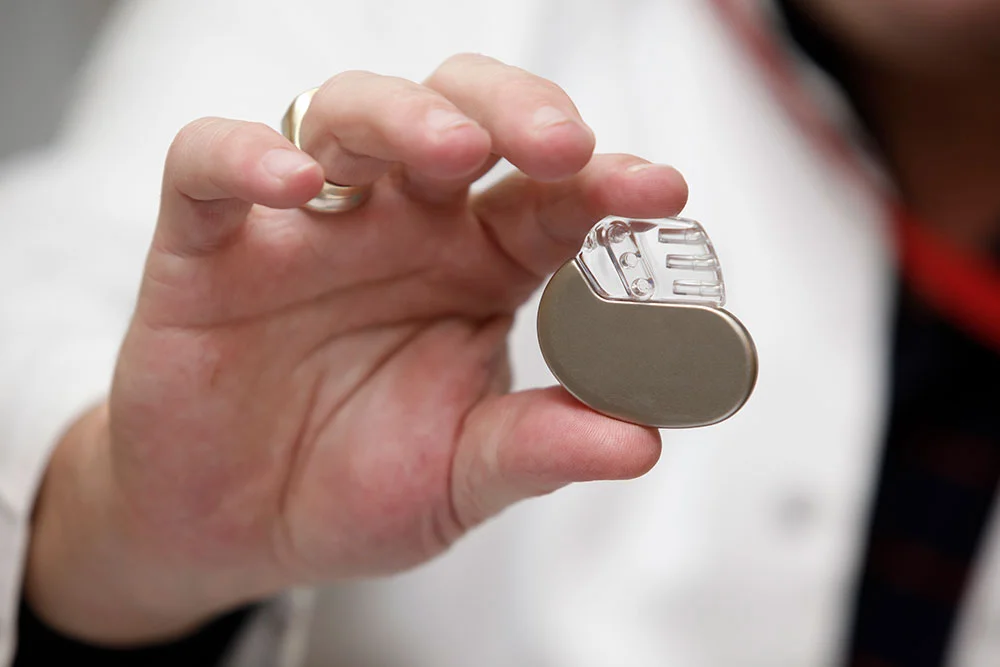TPC’s 2018 Value Analysis Team Summit – also known as the Fall Classic – by all standards was a huge success. At this annual event, TPC committee members have the opportunity to meet face-to-face with peers, discuss the TPC purpose and vision of working together as one, and collaborate on new initiatives and goals for the upcoming year.
TPC’s Interventional Cardiology (IC) Has Saved Members $9 Million
Achieving system value can be challenging for small, independent hospitals. However, when these institutions band together, they find strength in their collective power to negotiate for services and supplies. TPC began its Interventional Cardiology (IC) program to drive savings for Members for products in this category, including balloons, stents and guide wires. It became a highly Member-engaged initiative that yielded impressive results.
IC technology can be an alternative to more expensive and risky open-heart surgery. In IC, physicians insert interventional stents through the femoral artery and place them in the heart to hold the vessels open, allowing continued blood flow to the heart and vital organs. IC is a simpler and less invasive procedure for physicians to perform compared to others – removing the need to harvest veins or transfuse blood. Best of all, it’s an outpatient procedure, so patients heal faster without the need for lengthy hospital stays.
The TPC IC initiative engaged both the Cardiology Clinical Value Analysis Team (CVAT) and the Cardiology Physician Sub-Committee (PSC). When Members decided to tackle this category, one of the main concerns was individual physician commitment to existing IC vendor relationships. The goal of the TPC process was to select a common vendor or vendors that provide clinically acceptable quality at the best overall value. As a result, all Members were asked to move as a group from their current facility-specific vendors to collectively selected vendors that would serve the membership as a whole. While not a challenge to do, it did require change.
The IC initiative was created as a pre-commit program. By agreeing to formally adhere to commitment levels with the awarded vendor, TPC Members act as a virtual integrated delivery network (IDN) and demonstrate the integrity of their contracting process to the supplier community. Ultimately, TPC’s IC program offers its Members the ability to access clinically-acceptable products while also reducing overall costs, as they purchase in aggregate with other TPC Members.
To begin the process, TPC met with the administrative teams at each hospital to understand their concerns and desires related to the IC initiative. TPC then used this information as part of a strategy session with the Physician Sub-Committee (PSC) that consisted of cardiology physician representatives from each Member hospital. The physicians in the Interventional Cardiology PSC played an integral role in providing input into the TPC request for proposal (RFP) before sending it out to the vendor community. Vendors were made aware of the collaboration between clinicians and hospital administration to drive the best possible results for this initiative.
The strength of aggregated volume and solid commitment from the membership resulted in proposals from the vendor community that were highly competitive and drove significant value for the Members. The results? Since its introduction in 2010, TPC’s IC program has saved its members $9 million while delivering optimal patient care. And the program has continued to evolve over the years. As contracts term, TPC Members have been successful in evaluating the marketplace and moving market share, as needed, to those vendors who can provide the most comprehensive value. In addition, to date, TPC continues to meet its commitment with the category’s preferred vendors, with Members maintaining greater than 80% compliance.
“Our Cardiology CVAT and PSC success in Interventional Cardiology has been one of the best examples of what makes TPC great. Historically, Interventional Cardiology has seen a high level of physician preference, but by engaging directly with our physicians and clinicians, and working through the processes that the TPC has established, we have delivered substantial value from this category throughout the years,” explained Luke Martin, Director of Materials Management for Shannon Medical Center.
Interventional cardiology offers a less invasive way for physicians to treat heart problems, but requires sophisticated equipment that can be costly. When independent hospitals collaborate through a coalition model, they have increased negotiating power and a collective voice that can generate savings beyond what can be achieved alone. TPC is the epitome of a value-based partnership of community-based hospitals working together as a single system.
Stronger Together. Superior Results.
Learn more about membership today at http://www.tpc1.com/members/
TPC Cardiac Rhythm Management Initiative Saves Members Money and Improves Patient Outcomes
One of the main challenges for healthcare administrators is providing the best patient care possible while remaining profitable. They find themselves navigating ways to reduce costs and increase reimbursement, while simultaneously improving patient outcomes. Though the task can be daunting, many hospitals have found that strategic partnerships can provide the necessary support to help them achieve cost containment. TPC provides a platform that allows Members to work collaboratively to increase their financial, operational and clinical performance.
TPC Members Realize Huge Savings in Anatomic Pathology Lab Testing Services
To meet the challenges of today’s healthcare system, lab executives and administrators are rethinking their business strategies. As the era of fee-for-service from government and private payers is replaced by value-based reimbursement, how will clinical laboratories and pathology groups be paid? As integrated care organizations, such as ACOs and medical homes, enter the healthcare market, which lab testing services will deliver the most value to these new users? And will payers issue coverage guidelines and set adequate prices for the flood of new molecular assays and gene tests coming to market? These complexities have already driven a handful of medical laboratories and pathology practices to bankruptcy, sale, or closure. Innovative lab business and service models, such as those at TPC, are emerging to address these concerns.
Be Stronger Together and Get Superior Results with Clinical Reference Lab Services
Almost 60 percent of U.S. hospital executives said their institutions have had to change their business models if they’re going to survive financially. Conjointly, it is well established that both outsourcing lab services and creating partnerships help reduce costs. While most of TPC Members do outsource their clinical reference lab services, many have contended with how to secure true partnerships that assist them in further reducing spend in this area. By working together through TPC’s Clinical Reference Lab services, Members have realized an improved supplier relationship, and gained both financial success and improved efficiencies.
TPC Creates A New Gold Standard For PPI Spinal Implant Agreements
With the impact of Physician Preference Items (PPI) on total supply chain costs ranging anywhere from 40-60 percent, independent, community-based hospitals have begun working with physicians to dramatically change the way that these items are evaluated and purchased. Achieving system value without sacrificing quality of care requires a mixture of standardization and utilization with pricing strategies that optimize both financial and operational performance. One of the most exciting ways to achieve these goals is through standardization of medical device contracts.










